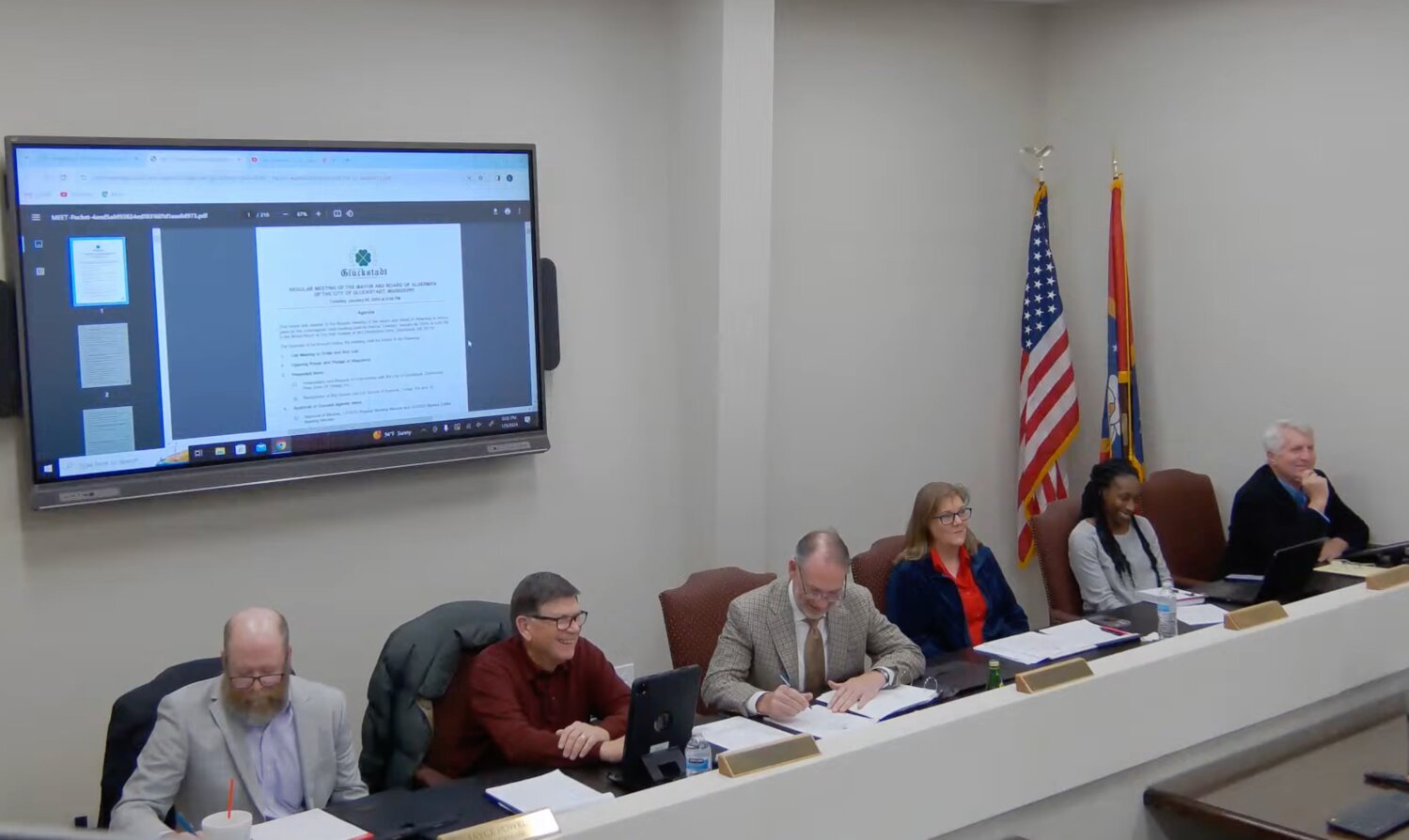Aldermen to review business saturation
Gluckstadt aldermen discussed the possibility of making zoning changes in the future to limit the number of types of businesses within the city during Tuesday’s board meeting.
Alderman Miya Warfield Bates began by discussing the possibility of placing a moratorium on similar businesses within the city.
She pointed to the fact two pending nail salons will bring the total within the city to eight.
“How do we as a small city determine what our need is to prevent excessive amounts of businesses,” she said. “Let’s look at all the different types of businesses.”
Planning and Zoning Administrator William Hall told aldermen that he would like some controls at the planning level.
He said in addition to the nail salons, the city has seven hair salons and eight gas stations.
Hall added he wasn’t against businesses coming to the city, he just didn’t want to see empty shells where businesses used to be because of over-saturation.
“I want to see businesses thrive,” he said.
Board Attorney John Scanlon told aldermen they could consider a moratorium to look at zoning changes, essentially pressing pause on certain businesses for a period of time, but several board members and the mayor were opposed.
“I just think it’s a slippery slope,” Alderman John Taylor said.
Mayor Walter Morrison chimed in, saying the people who invest their time and money into the businesses may think it’s worth it.
He said he didn’t think the city should be “picking winners and losers.”
Bates responded by saying some businesses that have opened in the city have already closed and she was just looking to find a happy medium.
Morrison then brought up the now-shuttered Pot & Paddle Jambalaya Kitchen, saying that it was the only business of its kind and the market spoke and it’s no longer open.
Alderman Lisa Williams then asked if the board could instead focus on conditional use permits as a way to control business similar to what the city did when they required liquor stores to be 4,000 feet away from each other.
Businesses subject to conditional use permits would then be required to come before the city before receiving a permit.
Alderman Wesley Slay liked that idea and said he wanted to make sure that city was open for business but they were also thinking decades down the road.
“I hate to see a dozen businesses and end up half of them closing,” he said. “That really does kind of blight our community. A closed business is a really, really red flag. It’s a bad sign.”
Slay was anti-moratorium but entertained the idea of using conditional-use permits to develop the city.
Hall was then asked to put together a list of businesses and zoning areas for presentation to the board at a future date.
No action was taken by the aldermen.



